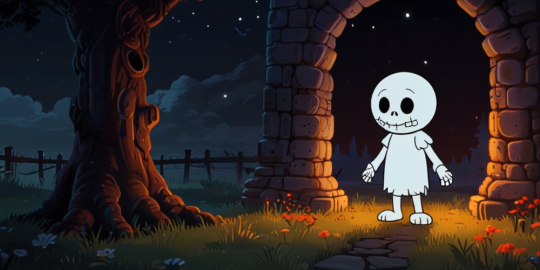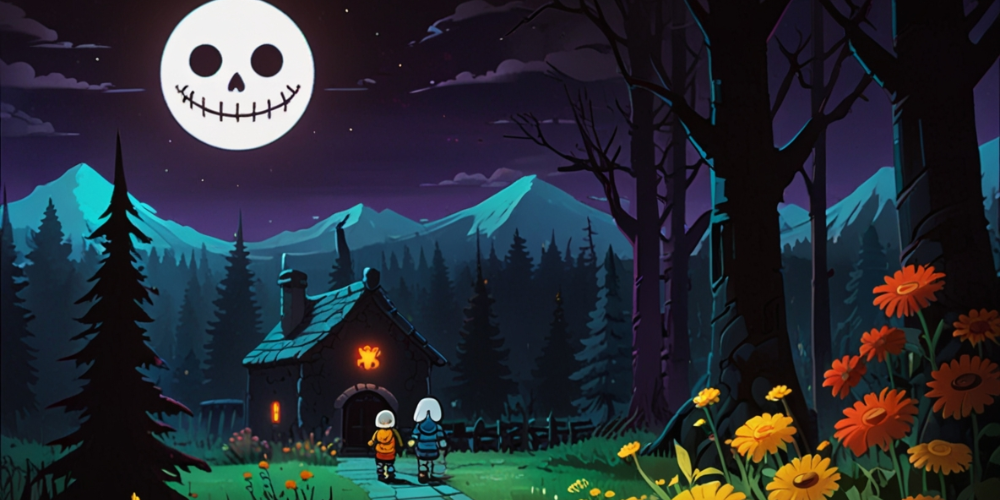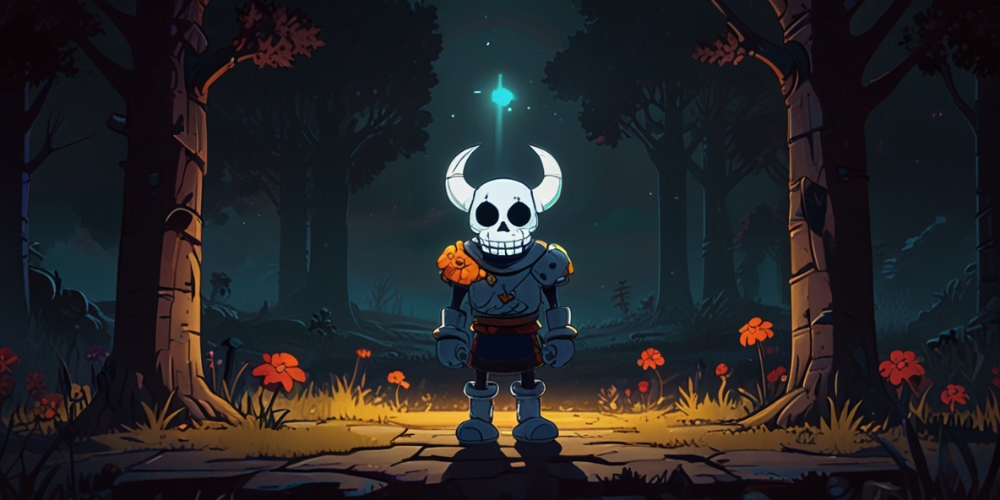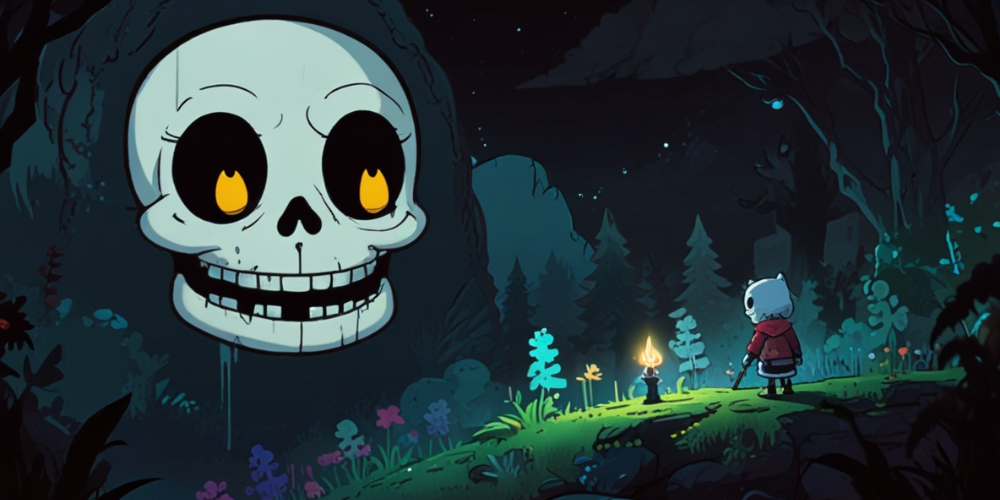
When I first stumbled upon Undertale, I had just about enough of the conventional RPGs that had been dominating the landscape. Relentless grinding, tedious leveling, and linear narratives felt old hat. Then, I found this indie gem that was unlike anything I had ever played. Undertale kick-started a creative revolution that challenged the very essence of how role-playing games functioned.
Breaking the Fourth Wall
As I delved deeper, one of the first standout features I noticed was how Undertale broke the fourth wall. It didn't just rely on the player to act as a passive observer; instead, it wanted me to engage with the world differently. Characters would reference my actions and decisions, blurring the lines between the game and reality. This unique storytelling method enveloped me in a way that other titles simply couldn’t.
The Combat System: A Dance of Choices
I was intrigued by the combat system, which defied the traditional turn-based mechanics that seemed to plague many RPGs. The "Act" feature allowed me to interact with enemies beyond just attacking or defending. I could choose to compliment a foe or even flirt with them! It was inventive, ensuring that each encounter felt fresh. Combat became less about minds and more about embracing empathy and understanding within the confines of this pixelated world.

Pas de Deux: The Peaceful Resolution
What astounded me the most was Undertale’s dedication to non-violence. The choice to spare enemies transformed encounters into negotiations rather than conquests. I quickly realized that my decisions held real weight; sparing an enemy meant they might help me later or even grant me insights I otherwise wouldn’t have gained. Consequently, I found myself thinking about the ramifications of my choices in ways I had never done before.
Multiple Endings: Replaying with Purpose
Undertale's allure didn’t just lie in its engaging mechanics but also in the sheer depth of narrative and consequence. The game offered multiple endings based on my choices, instilling a sense of purpose in replaying. Each path unlocked new revelations, making every choice I made intensely meaningful. I was compelled to experience all the facets of the storyline, from the heartwarming to the poignant.
Characters I Could Relate To
The diverse cast of characters pulled me in, each with rich backstories that made them feel authentic. They weren’t merely obstacles or antagonists; they were reflections of a wide spectrum of emotions and experiences. From the lovable Sans to the stoic Undyne, I found layers to their personalities that drove my investment in their well-being.

Morality and Choices: Consequences in Every Move
As I progressed, I noticed Undertale profoundly engaged with themes of morality and consequence. Every decision had repercussions that rippled throughout the game. While I could play as a hero, I could also embrace the darker side of my nature. The balance of my choices constantly gnawed at me, pitting my morality against the face of survival.
Music and Atmosphere: Setting the Stage
The music in Undertale played a crucial role in shaping my experience. Each track tailored to the moment—whether it was an emotional encounter or a whimsical battle—further drew me into the narrative. The sound of the piano haunted me during pivotal moments, creating an emotional bond that cemented my connection to the world.
Unique Combat Encounters: Mini-games Within a Game
What set this game apart was the clever inclusion of mini-games within combat encounters. I wasn’t merely dodging attacks; I was engaging in rhythm-based challenges that added a layer of intrigue to every battle. These segments encouraged me to hone my skills and adapt my strategies, allowing each encounter to become a unique puzzle rather than a rote task. I found joy in the learning process, experimenting with various tactics that would ultimately shape how I approached challenges.
Atmospheric Storytelling: Environmental Design
The environments in Undertale captivated my imagination. Each area had its own identity and story to tell, filled with clues that informed me about the world around me. I often marveled at how even the seemingly insignificant elements of design contributed to the overall narrative. This attention to detail enriched my understanding of the game, making every inch of the landscape feel alive.
The Influence of Humor
What I appreciated greatly was Undertale's ability to weave humor into its narrative. The clever writing kept me chuckling while still keeping me invested in dramatic moments. The balance between comedy and seriousness was expertly handled, showing that even in the depths of despair, a smile could emerge from just the right line or character action.
The Role of the Player: Partner in the Narrative
Undertale uniquely entrusted me with the role of an active participant in shaping the narrative. As I made choices, I felt a deeper connection than merely guiding a character through a journey. I was co-authoring the story, blending my thoughts, emotions, and experiences with that of the characters. This partnership was refreshing and anchored my engagement on a level I'd never experienced in RPGs before.

Social Commentary: Reflection Through Gameplay
One of the profound elements I discovered was how Undertale subtly commented on broader societal issues. Themes of acceptance, understanding, and empathy ran deep. The characters were not just avatars; they symbolized the complexities of real-world interactions. I found myself reflecting on notions of tolerance and resolution, exploring how the decisions I made in-game echoed realities outside its world.
Fan Community and Its Evolution
After completing the game, I eagerly ventured online to find a community discussing their own experiences with Undertale. I was surprised at how diverse interpretations emerged, from theories about the story’s lore to discussions about character motivations. The fan art, music remixes, and extensive lore analyses created a culture that extended far beyond the confines. I became part of a movement, passionately sharing my insights while absorbing the perspectives of others.
The Legacy of Undertale: Shaping Future RPGs
Undertale inadvertently laid the groundwork for future RPGs. Its success showed developers the potential of interactive storytelling, prompting many to explore deeper narrative choices in their games. The evolution ignited a passion for player-driven experiences that raced through the industry, paving the way for new titles to emerge, all eager to follow in Undertale's footsteps. The innovation established new standards for player agency and emotional engagement, ensuring its place in gaming history.
Continued Impact: Reflections on My Journey
Reflecting on my journey through Undertale, I can’t help but feel the impact it had on my gaming philosophy. It taught me the value of choice and consequence, the beauty of unconventional storytelling, and the importance of empathy within digital spaces. As I navigate the landscape of RPGs that followed, the echoes of Undertale resonate within every new experience I encounter, guiding my perceptions and expectations for what constitutes meaningful gameplay.